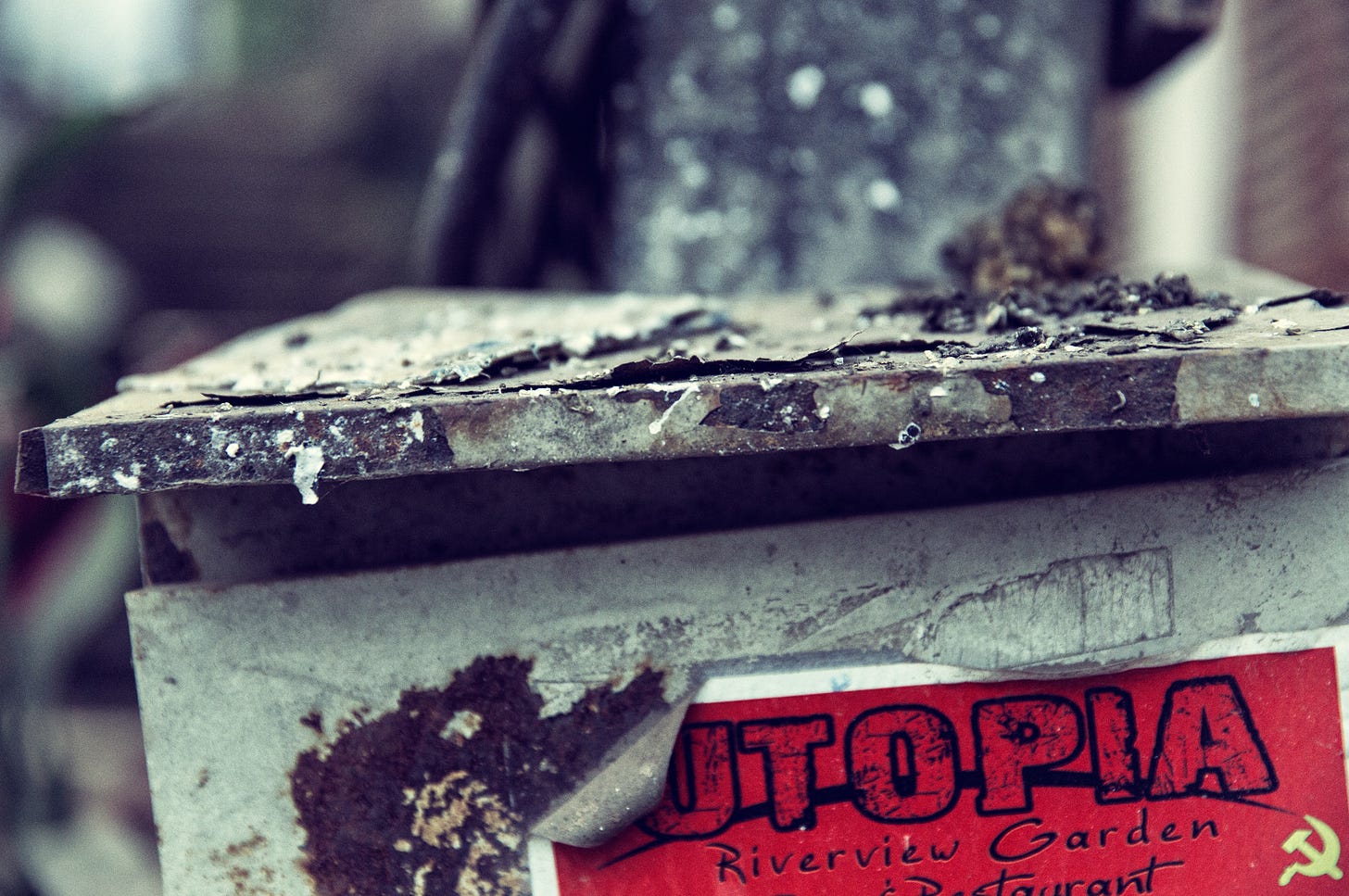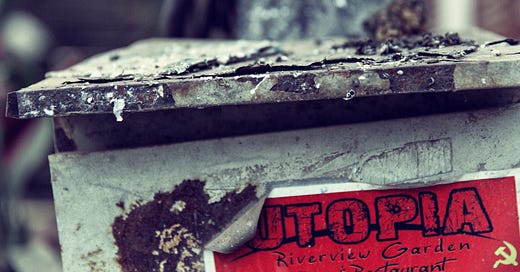In recent years, it has become clear to me that there is a war going on in the West. I don’t mean the war in Ukraine. I mean a culture war, being waged on the roots of Western tradition and against everything good that the West has produced. Targeting the minds of individuals by locking the past, present, and future of the Western civilization in an endless indictment for slavery, racism, and discrimination. Wokeism.
“Why do you care? You’re not American.” I get asked.
“You’re right. I’m Korean,” I answer. “But Western values are too important to be reduced to simple accounts of exploitation and bloodshed. The political split between North and South Korea led millions of people into opposite fates. And I see that split happening in the West.”
“You are a far-right conspiracy theorist,” most people react.
“The media is doing a good job on you,” I respond.
What do I mean by Western values? In my Western liberal arts education, I learned about the ancient Athenian culture of personal agency. The sense that one is in charge of one’s own life with freedom to choose one’s action. A virtue that fueled the tradition of debate and honor for individuality. Homer makes it clear that a man is defined almost as much by his ability to debate as by his prowess as a warrior. A commoner could challenge even a king. It was uniquely Greek, amongst ancient civilizations, to decide the state matters publicly rather than by authoritarian fiat. Tyrannies were energetically opposed in Athens.
Compare the Eastern philosophy. The Chinese orientation toward life was shaped by harmony. Every Chinese was first and foremost a member of a collective - the clan, the village, the family. Society was organized with hierarchical distinctions that people accepted as default, to lessen the social frictions that would interfere with obedience to the state, administered by magistrates.
Still after millennia, this cultural difference is palpable today. People who spent much of their time in the West, like myself, share the same frustrations when they return to Asia: fear of expressing themselves honestly, having to follow group-think, not being able to disagree, especially if the person is older and higher in social position.
After spending about 25 years in Europe and America, I returned to Korea in my early 30s. Western principles often made my life in Korea painful - I was too opinionated, too vocal, too intellectual in my conversations - but I held on to these values as much as I could. After all, the Enlightenment produced a flourishing in politics, sciences and arts.
Sadly, a few years ago, I saw these foundational principles of the West crumble publicly. Around the time when Covid hit, a wave of black squares flooded my Instagram. Captions followed, claiming that because an unarmed black man was choked to death by a white policeman in Minneapolis, America is systemically racist. A country of white privilege.

Loss of a life can be tragic. Anyone who’s been through the death of a loved one will know that. But how is America systemically racist? And what is white privilege? I have a few white American friends, none of whom are racist, and some of whom are struggling to make ends meet. This claim seemed unfair.
But maybe I had been in Korea for too long to grasp the nuance. So I texted a close friend. A white American woman from Virginia, in her early 30s, with an Ivy League education, working at an elite financial institution in NYC. Well-spoken, well-educated, well-established, surely she’ll have an answer.
“How is the US systemically racist?,” I asked.
I was not prepared for what came next. Over the following 2-3 days, a tornado of lectures on the oppression happening in the US hit my WhatsApp with spectacular conclusions: black people are hunted by the police, they are shot by the masses, calling the police on a black person is murder, the country is built on slavery, white people are racist, we need to STFU…
I was dumbfounded. For one, by her militancy. I had never heard my friend speak with such an aggressive tone before. And second, oppression in the US? Has she heard of my neighbor Kim Jong-Un up North?
I don’t deny the existence of racism anywhere in the world. In Korea, people with different skin colors and from less powerful countries than ours often get mistreated. And I have spent enough years in America to know that race is a sensitive issue. But I couldn't understand my friend’s logic. In 2019, the actual figure of unarmed black men killed by the police was estimated at 13 to 27 cases. It didn’t seem routine nor to constitute a systematic problem. And white people also get killed by the police.
What about slavery? The US was one of the first countries to abolish slavery when it was commonly practiced around the world. Asians were enslaving Asians, same with Africans at the time. Even today, some 50 million people are estimated to be victims of human trafficking and forced labor. Hardly talked about in the media. So why single out the US as a symbol of injustice and exploitation? The bullying and resentful tone that my friend revealed against my inquiries was chilling.
In the years following my startling encounter with my Virginia friend, social justice activism, aka wokeism, became a dominant driver of socio-politico-cultural discourse in America and Europe. Affecting every fabric of society from corporations, schools, media, to the mindset of individuals.
On the surface, the objective of wokeism seems noble. What good person wouldn’t advocate for justice and equality? But I can’t help notice the woke division of society into the dualistic Marxist framework of oppressors vs. oppressed: white vs. black, straight vs. LGBT, men vs. women, women vs. transgenders. Creating a societal schism by suggesting that the “bad people” are the root cause of all the problems. A society divided against itself cannot stand.
Wokeism attacks Western values and liberalism by politicizing immutable characteristics of human beings, such as one’s skin color and gender, that Western ideas affirm have no relevance to a person’s rights and freedom. Nevertheless, institutions at all levels, both private and public, are adopting this political activism, which, at times, has ended in violent riots like in the summer of 2020. And nonconformists who speak up against it often face social ostracization, or the kind of disturbing conversation I had with my friend from Virginia.
To my South Korean eye, Americans are not oppressed whatever their race or gender. There are no labor camps like in North Korea. There are no laws prescribed to a specific group that are not prescribed to another. America has a constitution, and the constitution protects the rights of individuals through a governmental system of checks and balances, which makes America the land of the free and home of the brave. The woke definition of oppression is inequity, the lack of equality in the outcome (in representation and economical standards) between the identity groups. Theoretical Marxist definition of equality. North Korea became what it is today through the government promise of annihilating inequity. Instead, it led to poverty and oppression. Being able to rise in comparison to other people is freedom that one should embrace as a blessing.
Many think that wokeism is good. Many think that Marxism is good. But as Alexandr Solzhenitsyn said, “truth eludes us if we do not concentrate our attention totally on its pursuit.” The difference between North Korea (which is defined by Marxism) and South Korea (which has adopted many traditional Western political values despite the lingering influence of the Chinese emphasis on harmony and conformity) is undeniable.
“Bad men need nothing more to compass their ends, than that good men should look on and do nothing,” said John Stuart Mill. In a war of ideologies, words are the weapons and arguments are the defense. And this is my battle hymn.



"Creating a societal schism by suggesting that the “bad people” are the root cause of all the problems. A society divided against itself cannot stand."
Somehow stumbled upon this essay and found it extremely refreshing to read. As someone who grew up in Asia and currently live in America, I feel the same way.
I love this, but no white American would dare write such a thing. It would be suicide. Today is far worse than the McCarthy era. Back then only a few thousand communists were being persecuted. Today, everyone is afraid. It is like Americans must re-stage the Salem witch trials every other generation. My only hope is that the descendants of Asian, African and Latino immigrants will save us from ourselves.